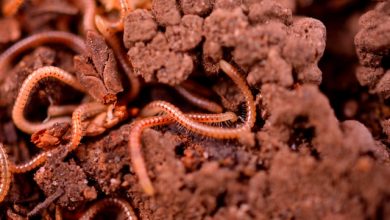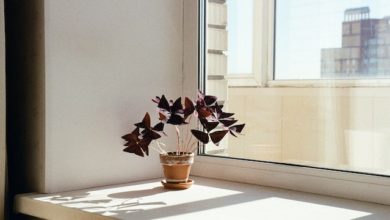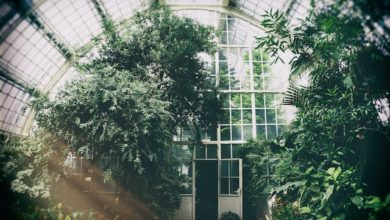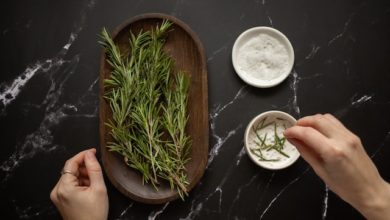
Companion Planting with Cucumbers
What to plant with cucumbers?
Are you looking for the best companion plants to grow this year with your cucumbers?
A role in the health, vitality, and yields of many of the vegetables that grow in a garden can be played by companion planting.
Your favorite plant cucumber is one of the plants that can certainly benefit from companion planting.
Your cucumber plant’s performance can be impacted by plants you grow near them. The impact can either be positive or negative depending on what you grow in close proximity to what you plant with your cucumbers.
A big advantage for a home gardener can be brought by knowing which plant falls on which side.
The Ins & Outs of Companion Planting
The positive relationships that exist between two varieties of plants that grow in close proximity to one another are what companion planting is all about.
Provision of a canopy of shade as they grow is one way for some plants to help others. While others assist in improving the soil for another plant by providing the nutrients that are most required.
However, there are even more benefits to companion planting. Because they draw in helpful insects, many plants make excellent companions for other plants. The companion plant may even benefit from its ability to ward off pests.
Monocultures are much more vulnerable to disease and insect pests. You are mimicking nature’s way of minimizing disease and pest attacks by increasing the diversity of the garden. Apart from sheltering beneficial insects, utilizing cucumber plant companions will also lessen any potential attack.
For example, the various benefits marigolds bring to tomatoes when they grow nearby. The benefit between tomatoes and marigolds is this; wasps are attracted to marigolds. And one of the best pollinators for tomato plants is wasps.
When you plant tomatoes and marigolds together, wasps will be attracted to marigolds and in the process help in the tomato’s pollination. Besides, wasps that are attracted to marigolds are essential in attacking the dreaded hornworm, which can be a huge issue the tomato plants.
Apart from marigolds attracting wasps that help in attacking the hornworms’ lifecycle, marigolds have a pungent smell on their foliage and blooms that help in repelling hornworms hence preventing them from attacking your tomatoes.
When utilized in conjunction with crop rotation, cucumber companion planting can help to build a sustainable garden that needs less human involvement to manage pests and increase soil nutrients and plants.
It can also contribute to a healthy harvest each year. Companion plants can also attract essential pollinators like bees and butterflies to your cucumber plants especially when the plants included plants are for pollinators.
As part of your permaculture gardening, it can also improve the growth environment by breaking up the soil, functioning as ground cover to retain moisture, or giving necessary shade during the hottest months.
The Best Companion Plants for Cucumbers
Cucumber plants have their own list of companion helpers just like tomatoes. Some of the cucumber companion plants are great to them in a number of ways including giving them support, aiding in keeping pests away, and even helping them in feeding.
Therefore, with this in mind, here are the best companion plants for cucumber plant planting.

• Corn
There are great tons of benefits when you grow any corn alongside your cucumbers. The types of corn include popcorn, sweet corn, and flint corn. Growing them alongside one another will benefit both the plants.
When cucumber plants’ vines are well-supported, they grow the healthiest. The cucumber plant and its fruit may experience a wide range of problems if the vines are allowed to sprawl across the ground.
To begin with, insects find ground-based vines to be simple prey, and they may easily attack both the fruit and foliage. Furthermore, when the leaves are deprived of adequate air to dry out, illnesses like powdery mildew and others are more prone to attack the foliage.
Not only that, but when cucumbers growing on the ground come into contact with the soil, their fragile skins stain and rot more easily. Fortunately, it is exactly where corn stalks come to the rescue.
Early in the growing season, cucumbers send their vines up the corn stalks as the corn grows. In addition to supporting the cucumbers and keeping them off the ground, it also offers some protection to the corn.
Animals that enjoy eating corn, such as raccoons and deer, do not enjoy walking on the cucumber’s thorny leaf. As a result, it frequently prevents the troublesome animals from entering the cornfield.
• Marigolds
Marigolds might make an excellent companion when you plant them with cucumbers as we mentioned earlier. Yes, they surely do. However, marigolds offer a different kind of protection.
As mentioned before, marigolds have a pungent smell on their foliage and blooms that help in repelling hornworms. Apart from this, aphids love to attack cucumber plants, especially the young and tender ones.
Marigolds are also a great companion when you plant them with cucumbers since they will help in repelling aphids hence preventing them from attacking your young and tender cucumbers. The pungent scent of the foliage and blossoms is supposed to include a chemical signature that deters insects.
Whatever it may be, marigolds can not only safeguard your cucumber crop but also enhance the attractiveness of your garden with their stunning petals.
• Bush Beans
Another plant that you can add to the long list of vegetable crops as an excellent companion plant is bush beans. The reasons why bush beans are excellent companion plants to cucumbers are as follows.
Bush beans are legumes and legumes are great plants for fixing nitrogen levels in the soil as they grow. When it comes to powering plant growth nitrogen is one of the most essential mineral nutrients. To develop strong foliage and bloom sets, nitrogen is certainly needed by cucumbers.
The nodules on a bean crop’s roots replace nitrogen in the soil as it grows. Cucumber plant roots can immediately absorb it as it happens.
Bush beans serve to offer a live mulch to help keep more moisture in the soil for water-loving cucumbers because they are also quick growers.
It seems sensible that dill would make a wonderful cucumber companion plant. After all, they make excellent dill pickles and are a great combination.
Dill plants attract a whole slew of pollinators to their fragrant flowers apart from adding flavor to pickle brine. If you grow cucumber with this plant, honey bees and wasps will visit the dill plant frequently hence leading to the pollination of their flowers during the visits.

• Sunflowers
Sunflower roots grow deep down into the soil and as they do, they break it up, unlike cucumbers. As the sunflower roots grow deep, softer soil is left behind making it the perfect condition for cucumbers to easily establish their roots.
Additionally, the sturdy stalks of a sunflower plant can also serve as a living trellis for cucumber vines as they grow just like when growing cucumbers with corn.
• Peas
Growing peas and cucumbers together in a garden is a good idea. Growing peas with cucumber will make it easy for cucumbers to absorb the much-needed nutrient as they grow since peas will help in fixing nitrogen in the soil.
Peas are also a legume. Both crops may easily coexist on the same trellis or support because they are both vine-growing crops that like to have support. To handle both as they grow, just make sure you have strong support in place.
• Broccoli
Cucumbers get along well with broccoli as well. This vegetable is regarded as a “superfood” since it is loaded with nutrients like vitamins and minerals that promote health.
• Carrots
When you plant carrots as soon as the soil can be handled in the spring, they will grow the best. As a result, they will have plenty of time to grow slowly before you plant cucumbers in the same garden bed after the soil warms up.
Another reason that makes both vegetables good neighbors is that they appreciate deeply tilled soil.
• Radishes
You should consider planting a few radishes near your cucumber plants if maximizing every inch of your garden is a priority. The spring types grow in 21 to 35 days, and they will sprout swiftly.
The radishes will be but a fond memory by the time your cucumber plants are sizable enough to need the space.
The fact that they do not even intrude on each other’s space makes parsnips and onions suitable companion plants for cucumbers as well.
This is because cucumbers send down one larger tap root and also a few shallow roots that do not extend far while the roots of parsnips and onions primarily grow beneath the soil.
A few plants to avoid planting
There are a few crops you may want to keep away from your cucumber crop.
They include the following:
• Potatoes
To grow their root crop, potatoes require almost the same combination of nutrients as cucumbers.
As a result, growing them together may leave neither plant with enough resources to yield a good crop. Additionally, both plants are susceptible to the same diseases and pests, which might cause issues.
You should also avoid planting your cucumber plant with or near cabbages, kale, cauliflower, and melons. This is because these plants can bring harm to your cucumbers crop since their either use the same resources or attract pests.
You will need to observe, tinker, and check in on your seedlings, soil, and even the bugs to figure out which pairings will work in your available growing space.
FAQs

1. Can I plant tomatoes next to cucumbers?
Cucumbers and tomatoes make excellent companion plants since they grow well together, especially in a greenhouse.
They grow and become ready for harvest at roughly the same time and thrive in similar soil conditions.
2. What can you not plant near cucumbers?
Potatoes and melons are some of the plants that you should avoid planting near cucumbers. Additionally, you should also avoid planting sage near your cucumber crop.
3. What are the disadvantages of companion planting?
Despite companion plating being positive, there are some disadvantages that come along the way and they include:
- Competition for nutrients and water may weaken vitality.
- When the companion crop is eliminated, the main crop must fill up the gaps.
4. How close do companion plants need to be?
You should plant plants within two or three rows of each other plants that have known beneficial relationships(friends).
Additionally, you should plant at least 2 to 3 rows apart plants that are known to have detrimental relationships(foes).
5. How do I start companion planting?
Avoid becoming overly fixated with crop pairings. The most crucial factors affecting your growth are proper spacing, sun, water, and adequate soil management.




